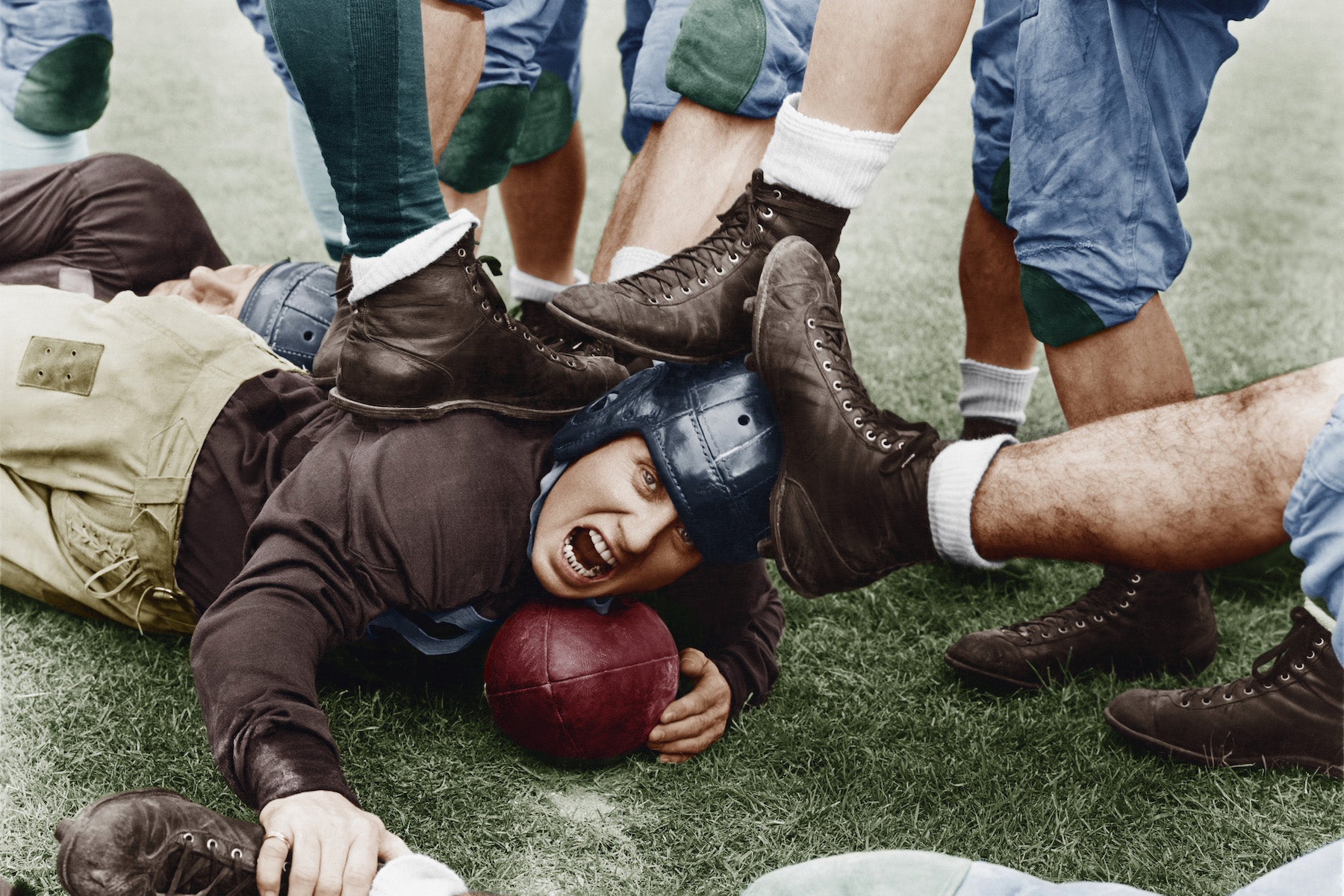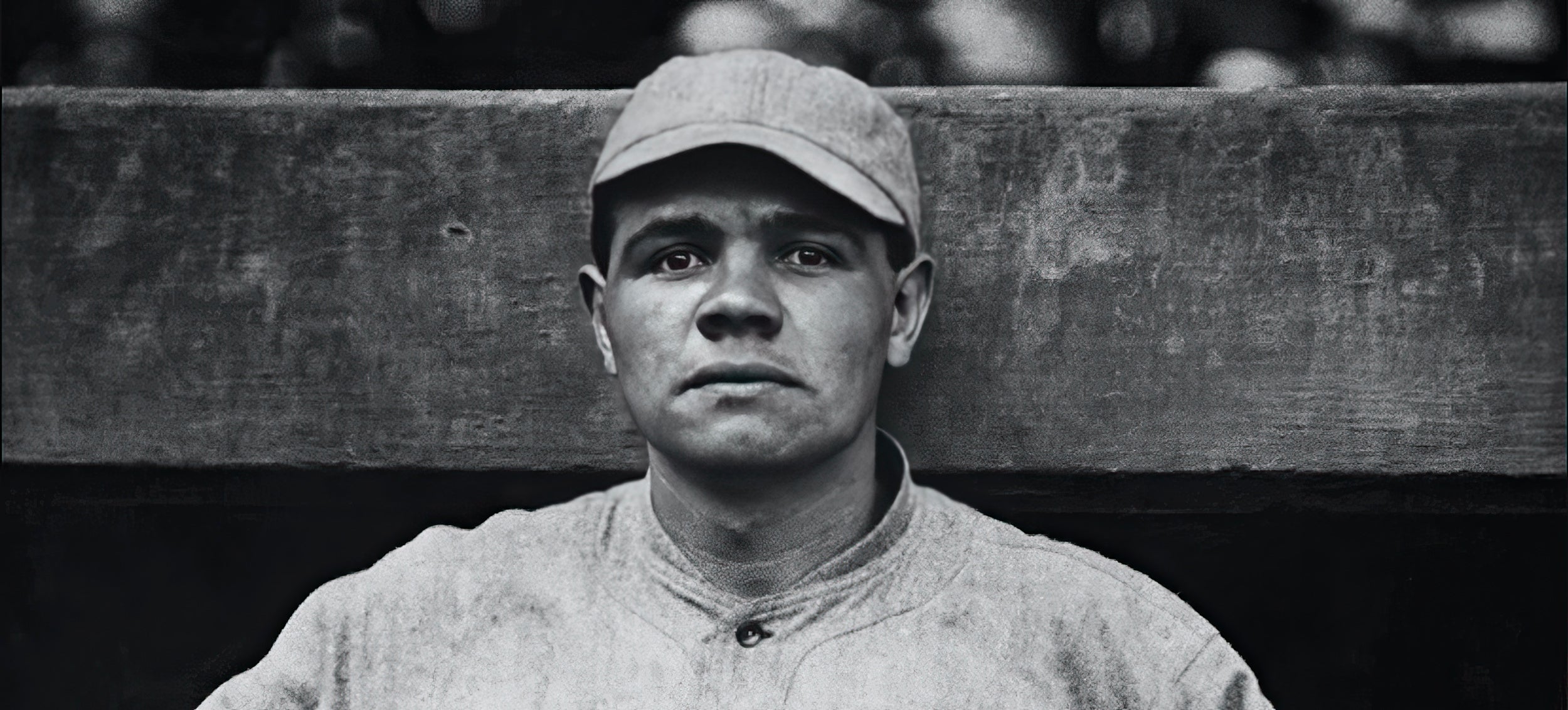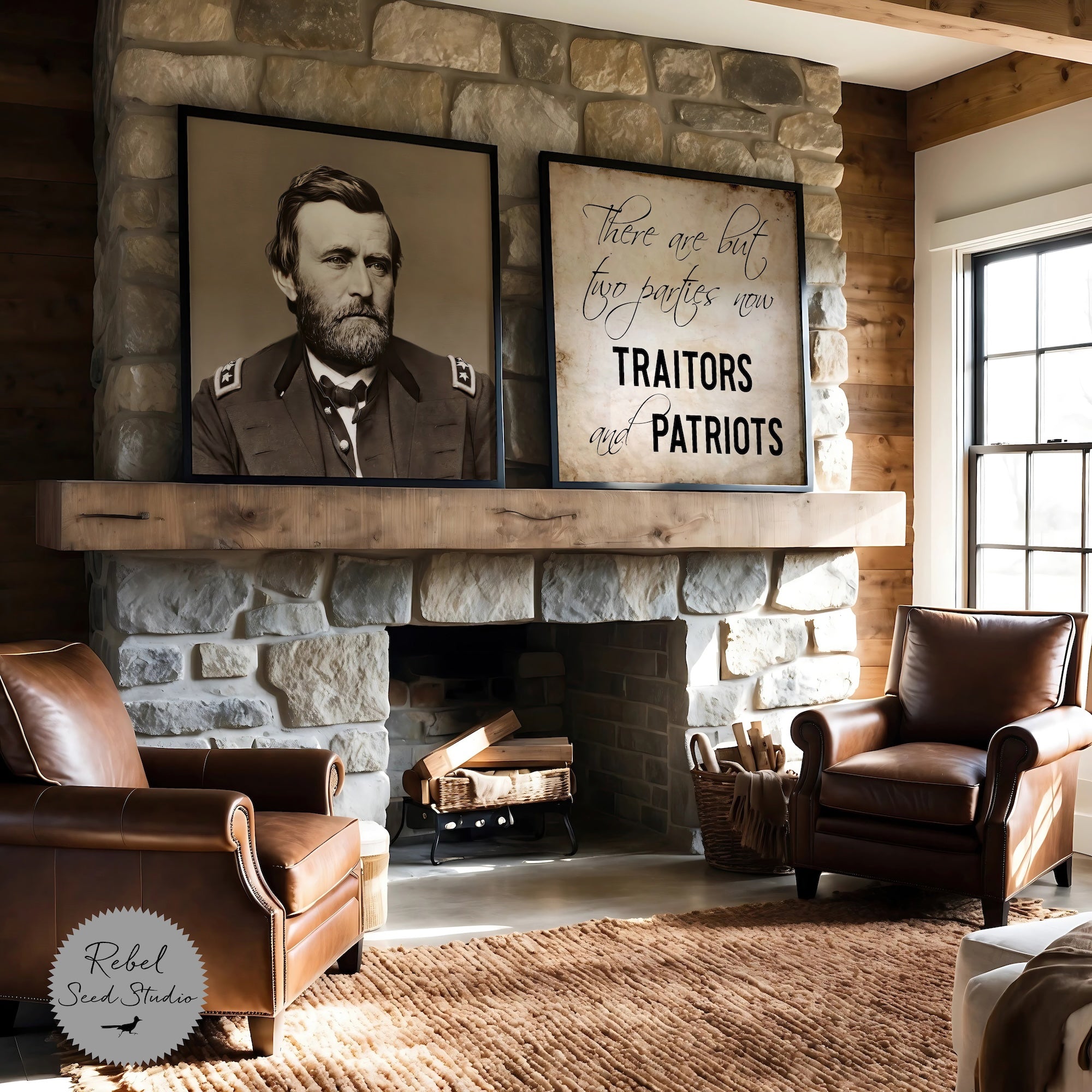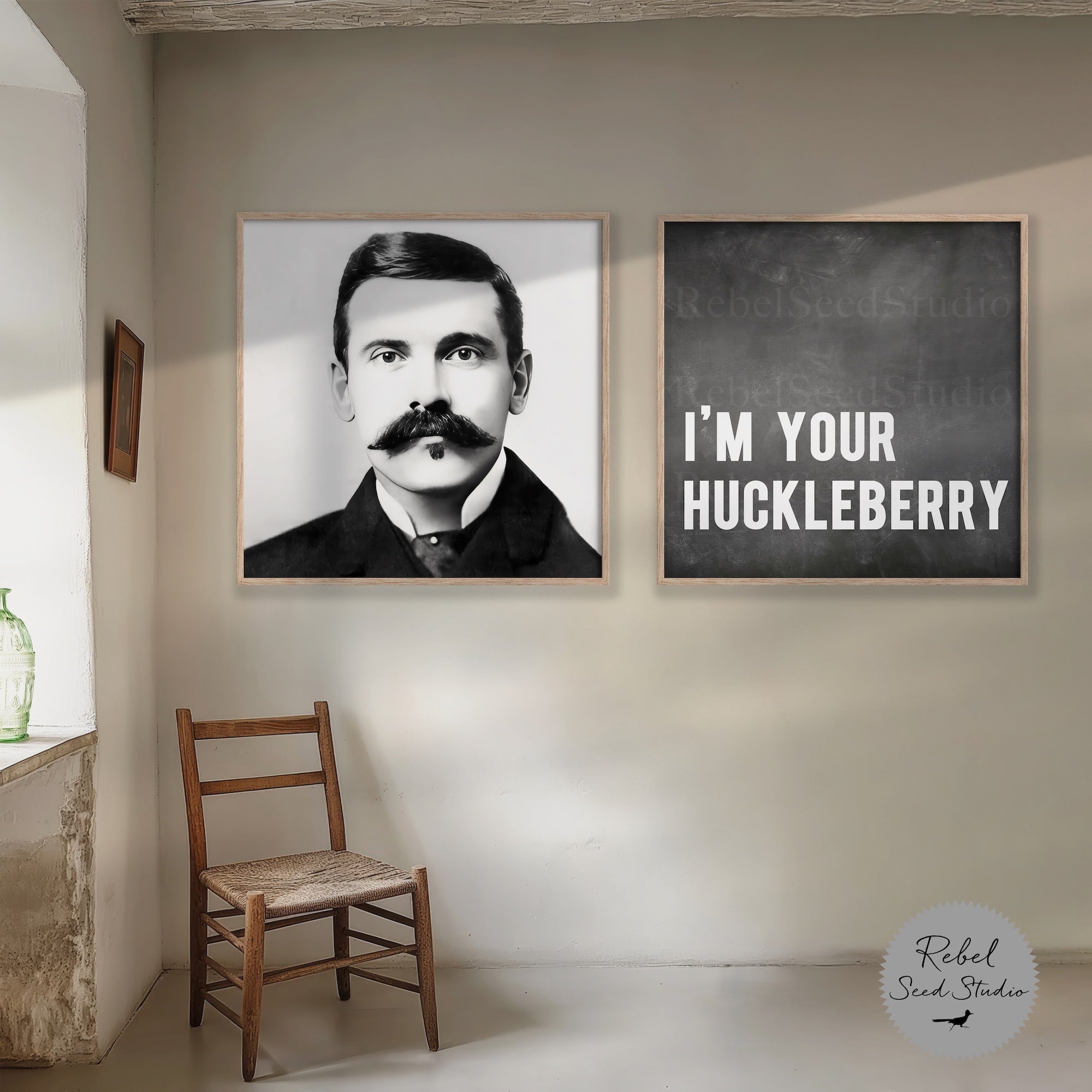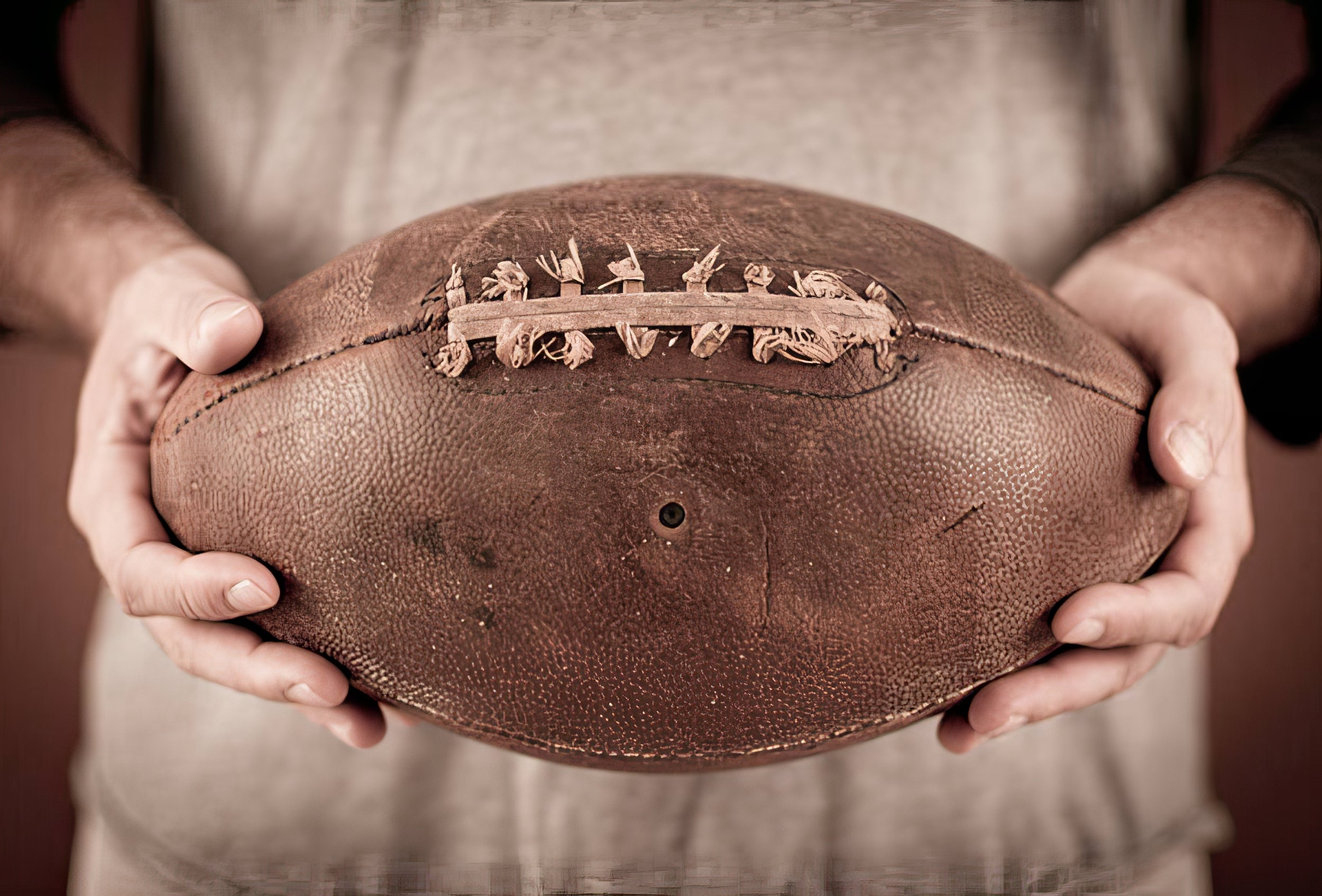
Cumberland vs Georgia Tech: The Highest Scoring Football Game in History (Historical Reprint)
Article reprinted from the book "Cumberland: The True Story of the Highest Scoring Football Game in History" written by Scott Larson
Some disasters don’t make the front page. They make the sports page. On October 7, 1916, nineteen unfortunate souls set off on an ill-fated trip to Atlanta to face the mighty Georgia Tech led by legendary coach John Heisman, after a wheeler-dealer, named George Allen, assembled a ragtag team of Cumberland University law students to play an unauthorized football game against the formidable Yellow Jackets. When the Cumberland players realized their predicament, they were forced to make a difficult decision - play what seemed to be an un-winnable game and risk being caught and expelled, or back out and forfeit a financial penalty that would bankrupt the university. More than a hundred years later, the game that has been called the Little Bighorn of football is regarded as the blowout of the ages.
THE GAME
Five days shalt thou labor, as the Bible says.
The seventh day is the Lord thy God’s.
The sixth day is for football.
- Anthony Burgess, English novelist
The date was October 7, 1916. This was the day the Georgia Tech players had been waiting all week for. This was Saturday, a day not like any other day known to man. Because, on Saturday, that is when true glory is achieved. Where one can witness a symphony of athletic artistry and feats of divine wonder that oftentimes defy comprehension. When men will rise, hearts will race, and legends will be made. Yes, my dear friends, this was Saturday. This was the reason God made Sunday the day of rest.
As fans funneled into the stadium for the early afternoon kickoff, the campus was already abuzz for the day’s gridiron activities. The stadium smelled of freshly cut grass and hot concession foods. In attendance were roughly a thousand anxious spectators, the majority of which populated the west grandstands. Others watched from vehicles lining the east side of the field. The men in the stands were typically attired in dark wool suits and the women in calf-length dresses and view-obstructing hats. A church bell chimed somewhere off in the distance. But it was not to mark the beginning of a church mass where our eternal salvation hung in the balance. This was something far more important than that. This was a football game.
An announcement on page ten of the Atlanta Constitution alerted the residents of Atlanta of the afternoon contest with little fanfare:
The Tech Yellow Jackets will play the second game of the 1916 season this afternoon at Grant Field, starting at 3 o’clock, with the Cumberland university eleven as their opponents.
This game should be a practice romp for the Jackets, but local interest in the game will center on what progress the local eleven has made after a week’s more practice and behind closed gates.
The same line-up that opened the game against Mercer will probably start in this contest with many changes being recorded as the game progresses.
The admission fee will be $1 and tickets can be purchased at Elkin Drug company.
Still, the Tech supporters and devotees turned out for the game to cheer their team on toward victory. In the visiting team locker room, the Cumberland players clung to the faint hope of some sort of pardon from the Governor that would never come. The efforts of George Allen had fallen on deaf ears. The team would have to play the game to avoid the costly forfeiture penalty, not to mention, collect the $500 guarantee. To make matters more unpleasant, the uniforms “borrowed” from the nearby Castle Heights School were rumored to have been unwashed when they were stolen and still smelled of their previous usage.
The Cumberland players did take the opportunity to pose in the uniforms for a team photo beside one of the university buildings before they left. The players appeared optimistic and in good spirits in the team photograph. Based on the looks on their faces, they seemed full of hope in regards to what laid in front of them once they boarded that train to Atlanta. Anyone who steps into a competitive arena does so in hopes of being hailed as victors. That’s because winning feels infinite times better than losing feels. From the beginning of time, we, as humans, have always loved the stories of winners and greatness. Sportswriters like Grantland Rice made a career out of such tales, turning sportsmen into legendary heroes. Yet, to have winners, there must also be losers. For one person to feel the thrill of victory, another person must feel the agony of defeat. And some defeats, as this game would attest, could prove more agonizing than others.
As the moment of truth arrived, the Cumberland Bulldogs, as the team was called even way back then, stepped onto the field to the boisterous boos and hisses of more than a thousand unwelcoming voices. On the heads of many of the loudest and most enthusiastic of the attendees, were the golden-colored RAT caps Tech freshman were obligated to wear on campus and to every game. In those days, they were known as “freshmen” caps and sported a white “F” on the front instead of the “T” that adorns the cap today. The caps had been started by the ANAK Society, the oldest known honor society at Georgia Tech, that featured Tech football players Froggie Morrison as treasurer and Jim Senter as president. Many who turned out for the game that day likely had to look up Lebanon on a map.
The matchup was not expected to be among the toughest for Tech that season. Those games would be reserved for later in the season, after they had worked out all the glitches and kinks. In the final weeks of the football schedule, Tech had games lined up to play Alabama, Georgia and Auburn. This was considered more of a warm up contest, as the game with Mercer had been the week prior. But any team had the potential to upset their team and it was their job to provide the necessary spirit to ensure that would not be the case.
As Heisman and Georgia Tech Yellow Jackets entered the field, the Tech band responded with a rousing rendition of “Up With The White & Gold”, as the Tech faithful sang right along with them in loud, boisterous voices:
Oh, well, it’s...
Up with the White and Gold, down with the red and black,
Georgia Tech is out for a victory.
We’ll drop our battle axe on Georgia’s head
When we meet her, our team is sure to beat her.
Down on the farm there will be no sound
’Till our bow-wows rip through the air.
When the battle is over, Georgia’s team will be found.
With the Yellow Jackets swarming ’round.
To the players on the Cumberland team, the Georgia Tech Yellow Jackets must have appeared impressive even from a distance. They marched stoically onto the field to raucous praise from the crowd, led by the legendary Coach John W. Heisman. The Tech players were all attired in matching team sweaters, leather helmets and baggy pants, but with their signature look of no tall stockings since Heisman considered it cooler for the players without them. It must have seemed to Cumberland that the Georgia Tech players were getting bigger the closer they got.
Heisman had always been known for getting more out of the smaller-sized players at his disposal. But Heisman’s recruiting efforts resulted in powerhouse players for his powerhouse football program. Now he had size as well as speed and smarts. He built a highly talented and finely tuned team just like a true engineer. The game pitted small-town lawyers up against big city engineers.
Cumberland had to feel some comfort in knowing that, up against a worldly and materialistic technology school, God would be their twelfth man. They were just hopeful he’d be able to tackle and block. This game pitted big against small, new south versus old south, science against religion. This was the top technological school in the south, sponsored by the state, going up against the top southern law school, born from the Presbyterian Church. On the tournament field, in front of 1,000 eager spectators, the men of science planned to smite the men of faith. The engineers had scientific football on their side. They had highly trained players. They had state-of-the-art equipment and facilities. They had the Heisman Shift. All that Cumberland had on their side seemed to be a wing and a prayer.
Although the detail went greatly unnoticed at the time, the contest would have an impact on the game of football that went beyond the unforgettable final score. In his eagerness to put a statement-making hurting on the visitors from Cumberland, Heisman pioneered another important modernization without even realizing he was doing so. Prior to the kickoff, Heisman informed his players he planned to divide the team into two separate groups. The plan for two separate squads, or platoons, (with an offer of steak dinners to the platoon who played the best) was intended to keep players fresh so they could continue producing points at a high rate without letup from players getting tired.
The concept, although a little masochistic in its intent, had a lasting impact nearly as game changing as the forward pass. Not only did platooning players become a standard resource for Heisman moving forward, it became the basis for the now standard practice of having separate Offensive and Defensive Squads. Today, a one-platoon system, called Iron Man Football, where a player participates on both sides of the ball is a rarity in the sport beyond the high school level. Leon McDonald, the Cumberland fullback, being the lawyer that he was, later argued that Cumberland also contributed a major innovation that day by first introducing the huddle to the sport of football. “We were so tired that I had to call the boys together every little bit to figure our surest way of living through the game,” recalled McDonald. “Our huddle idea seemed to catch on after that.”
Along with legions of Tech supporters, also in attendance that afternoon were many of the sportswriters who had disagreed with Heisman over selecting a champion based on total points. Most of their newspapers awarded the southern title to Vanderbilt the year before, despite Heisman’s protests that Coach McGugin had run up inflated scores against inferior competition. The great Grantland Rice was in attendance covering the game, as well as Morgan Blake from the Atlanta Journal and Fuzzy Woodruff of the Atlanta Constitution, who would both run pieces in their papers the next day about the game.
One person who was not in attendance for the game was Tech assistant coach Bill Alexander, who coached the scrub team. In a 1928 issue of Collier’s, Heisman recalled the words Alexander had left the team with as he departed on a scouting trip: “If you boys don’t lick Cumberland by 50 points,” Alexander told the team, “you ought to be whipped.” In response, Everett Strupper inquired, with a smile, “If we score 100 will you set ‘em up for the gang, Alex?” To which Alexander grinned, “I’ll set ‘em up for the varsity scrubs and the [freshman] if you make it 200.” Alexexander never expected in his wildest dreams he would have to pay. The newspapers the next day must have been a shock to Alexander to say the least.
A coin toss by the referee decided which team received the ball first. Each team was represented by a team captain. The captain of the Georgia Tech team was Talley Johnston, the right halfback for the Yellow Jackets who’d been handed the duties from quarterback Froggie Morrison at the post-season banquet celebration at the close of the previous season. For the Cumberland team, George Allen had naturally appointed himself team captain. Georgia Tech won the toss, but in an act of generosity deferred to Cumberland, who chose to receive. Tech would defend the North goal.
Before sending his team onto the field, Allen reportedly offered his players some last-minute words of encouragement, telling them to “Remember the $500!” On the opposite sideline, Heisman offered his team some last-minute advice as well: “Remember the baseball game.”
im Preas handled kicking duties for Georgia Tech in the first half. The opening kickoff, which Preas boomed to the South end of the field, resulted in Cumberland getting possession of the ball on their own 25-yard line. The kickoff also resulted in the game’s very first casualty, as Cumberland quarterback Eddie “QB” Edwards, who had been blocking on the return, lay writhing on the field after the play. In today’s football world, including the team’s starting quarterback as a blocker on kick returns is not generally regarded as a good idea. But this was a different time and the reader should refrain from being overly harsh in their judgment.
With the injury to the starting quarterback Edwards, the team turned to his backup Morris Gouger. The Texas native responded by calling his own number, or vegetable rather, and bursting through the Georgia Tech line for a 3-yard gain. This run by Gouger ultimately proved the biggest gain of the game for Cumberland. When the Georgia Tech defense stiffened up and stopped the ball carrier in the next two runs, Cumberland was forced to punt.
With an unimpressive punt by Cumberland combined with an impressive return by Georgia Tech, the Yellow Jackets started their drive on their opponent’s 20-yard line. On their first play, Tech swept around the left end and Everett Strupper, their all-star halfback, evaded all the would-be Cumberland tacklers for a score. Although blocking was not legal to do at the time, the Georgia Tech linemen were highly versed in the art of “interference”. On the touchdown run, the entire left side of the line (Walker “Big Six” Carpenter, Bob Lang and Pup Phillips) created a virtual wall of blockers that discarded any Cumberland player who even remotely occupied Strupper’s path to the end zone.
As Preas put the ball through the uprights for the PAT, the Tech band punctuated the occasion with the “Ramblin’ Wreck” fight song, derived from an old English and Scottish drinking song “Son of a Gambolier”, and enthusiastically sung by school faithful following each and every Tech score:
I'm a Ramblin' Wreck from Georgia Tech and a hell of an engineer,
A helluva, helluva, helluva, helluva, hell of an engineer,
Like all the jolly good fellows, I drink my whiskey clear,
I'm a Ramblin' Wreck from Georgia Tech and a hell of an engineer.
Oh, if I had a daughter, sir, I'd dress her in White and Gold,
And put her on the campus, to cheer the brave and bold.
But if I had a son, sir, I'll tell you what he'd do.
He would yell, “To Hell with Georgia", like his daddy used to do.
Oh, I wish I had a barrel of rum and sugar three thousand pounds,
A college bell to put it in and a clapper to stir it around.
I'd drink to all good fellows who come from far and near.
I'm a ramblin', gamblin', hell of an engineer.
Less than a minute had been played in the game and Georgia Tech was already up 7-0. There was no reason to panic on the Cumberland sidelines. George Allen clapped his hands and shouted encouragement to his players. They were set to receive the ball a second time. With a subpar kick return from Gouger, Cumberland started from the 10-yard line this time.
The Tech defense was relentless and suffocating, particularly the lineman who included Carpenter, Lang, Phillips, Canty Alexander and Bill Fincher. “The rush line men of a football team on defense are the artillery that batter down the walls of the beleaguered city, while the secondary defense men are the infantry that rush in with their cold steel after the breach has been made,” wrote Heisman in Principles of Football. “It is the business of the defensive line to ‘Charge hard with the ball’, crowd back the other rush line into the faces of the advancing backs, smash up the interference and thereby force the runner out into the open. The secondary defense men coming up rapidly - as soon as they have made sure that it is a rushing attack and not a forward pass - are now close at hand to dispatch the runner with a deadly tackle.”
Allen looked to his ringer John M. “Johnny Dog” Nelson to turn things around for the team. The former Cumberland player had reportedly played under the name of a current Cumberland student who only attended the university for a short time. A smart bet might be on the name “George Murphy” since Morgan Blake reported in the Atlanta Journal the next day he was the only player who showed up and made some plays. His first play would not be one of those, as Murphy fumbled the ball while sweeping around the right end and a Tech defender scooped it up and ran it in for another easy score. The Tech band fired up another spirited rendition of the “Ramblin’ Wreck” fight song as Preas put another point down the middle of the goal posts.
Now the score was 14-0. Not an insurmountable lead. There was more hand clapping and shouts of encouragement from Allen. Morris Gouger returned the next kickoff 20 yards to start the team on the 30. Not a bad field position. The Georgia Tech defense, which was playing for steak dinners as well as avoiding the scorn of their coach, were not in the mood to give up anything to Cumberland. Under a swarm of Tech defends, Leon McDonald, the Cumberland fullback, fumbled on the opening handoff of the drive, just like Murphy had, and the ball was recovered by Tech back on the 20. Two straight drives, two straight turnovers. On the first play after taking over possession, Strupper took the ball around the right end for 15 yards. This play was significant for Cumberland in that it was the only time their defense would stop the shifty left halfback from scoring. These were admittedly small victories, but something a good coach could build on. Cumberland, unfortunately, was lacking one of those.
Decades later, during a 40-year reunion, few Cumberland players could even remember the fella Allen had recruited to coach them. Knowing Allen, it would not be outside the realm of possibilities that Coach Butch McQueen had been recruited more for his masculine sounding name than any actual coaching ability. But that would be pure speculation. The responsibilities of hand clapping and shouts of encouragement (that must have already begun to lose their enthusiasm and authenticity) fell almost exclusively onto him.
On the play following their momentous stop, Preas filled in for Strupper and took the ball in from five yards out, Georgia Tech touchdown. Preas kicked his own point after to make the score now 21-0. The Tech band cued up “Ramblin’ Wreck” once again as the crowd sung along in the grandstands. The automobiles, lined along the east side of the field, honked their horns along with the trumpets and tubas. This must have started to become a helluva, helluva, helluva, helluva, hell of an annoying song to the players on the Cumberland sideline. The game was looking like it had the potential to be a score fest for Georgia Tech if they didn’t do something soon.
On the next Cumberland possession, the team turned to Heisman’s own contribution to football to turn things around. On the first play from scrimmage, backup quarterback Gouger lost five yards, but on the next two plays Cumberland unleashed their passing attack upon Georgia Tech. Leon McDonald filled in for Gouger behind center and put the ball in the air on two consecutive plays. The effort would fall far short of the famous Notre Dame passing performance against Army in 1913 as both passes disappointingly went for incompletions.
Thanks to a lackluster punt from Cumberland that went out of bounds, Tech only had to go 35 yards to add another score to their rapidly increasing point total. Buzz Shaver ran for the first 25 yards and Everett Strupper hit the same spot for the final 10 yards and the score. Strupper’s nickname, “Strupe”, was ideal for fans to shout out in unison following a big play. Strupe would provide them with many opportunities in this game.
With the requisite fight song and PAT the score was 28-0. Allen had to be generally pleased with how his vegetable play-calling system had worked out so far. Except there was one thing he didn’t figure on: While the vegetable play-calling made it easier for Cumberland to remember the plays, after a few possessions, Georgia Tech started figuring out the plays as well. This was not all that surprising when you considered the knack Strupper had for reading plays, and lips, due to his lack of hearing. Before long, the entire Tech defense was learning which Cumberland player was getting the ball, and where they were going with it - at the exact same time Cumberland was.
The realization soon hit Allen that the team was giving up more to the Yellow Jackets on offense than they were on defense. Between fumbles and losing yards, Tech was benefiting from short fields on every offensive possession. To remedy this troublesome problem, Allen offered up the idea of punting on first down to slow down the Tech scoring. “I am sure the score would have been even bigger had we not stopped receiving and begun kicking off after touchdowns,” admitted Allen looking back later. “That system, on the occasions when the kicks were not blocked, forced them to run the whole distance of the field for the next touchdown instead of from the place where we fumbled.”
The idea of kicking the ball back to Tech on first down didn’t exactly work out as planned. In the team’s first attempt at doing so, Buzz Shaver, the right halfback for Tech, returned the ball 70 yards to the Cumberland 10-yard line - the shortest field of the game so far for Tech. From the 10, Strupper burst loose on his first run from scrimmage headed for an easy touchdown, but instead of scoring, Strupper downed the ball at the 1-yard line. Canty Alexander was playing his final year of eligibility and had never scored a touchdown for Georgia Tech. With a safe lead in hand, the call was made to allow the big lineman to run it in. The game was already bordering on being a farce. This was little more than Heisman rubbing it in. But the effort to give Alexander a touchdown drew applause from the crowd and an opportunity for a prank from teammates. “They framed up on me the game before, but this time I made them swear they would block for me,” said Alexander. “I was so busy watching to make sure they blocked that the ball hit me in the chest and I fumbled. But I picked it up on the five and pranced across like a debutante.”
The Tech faithful were so caught up in the big fellas quest to get a touchdown under his belt the play was highlighted for the readers the next day in the Atlanta Constitution:
“Canty” Gets His Score. Among those who shared in the glories of making a touchdown was “Canty” Alexander, who has been trying to carry the ball over for the past three years. He attempted three bucks in the Mercer game with the ball on the five-yard line, but couldn’t carry it over. Yesterday, Strupper got away on an end run of 20 yards and could have made a touchdown, but stopped instead and placed the ball within one foot of the goal. From this point, “Canty” bucked it over and placed it between the posts. It was a big day for “Canty”.
By this point in the game, the sportswriters must have realized they were in store for a high scoring affair from Georgia Tech. But they could not have known how high scoring the game would become. Nor could they have suspected that the prodigious point total Heisman’s Yellow Jackets were pouring on was intended to make a point to them. With the score now 35-0, Cumberland elected to kick back to Georgia Tech again in hopes of giving them a longer field to travel. This time the Cumberland tacklers managed to down the Tech returner somehow on his own 40-yard line. Georgia Tech would have to travel 60 yards to get a score, which Strupper did on his first carry of the drive as he busted loose for one of his most explosive plays of the game - a 60-yard scamper for a Tech touchdown, his third of the day and the team’s seventh.
The score was now Tech 42, Cumberland 0. In his “the best defense is a non-existent offense” strategy, Allen had Cumberland kick back to Tech on first down one more time. Allen’s hand claps and pep talks must have paid off. On this drive, the Cumberland defense stiffened up to require three plays for Tech to score. Inspired by this pulse from his team, Allen had them have a go at offense once again.
They were only down 49-0. Hardly insurmountable, although he couldn’t remember an occasion where it had ever been done. Fill-in quarterback Leon McDonald, who had replaced an injured starter and ineffectual backup, went to the air two more times resulting in two more incompletions. Not bothering with a third, McDonald instead punted the ball back to Tech with Strupper returning the kick 45 yards for another Tech touchdown. 56-0. Cumberland decided to forego their turn on offense again. They kicked right back to Tech and Tommy Spence, the fullback for Tech and future fallen war hero, returned it 90 yards for the score. Preas added his ninth straight extra point to make the score 63-0 in favor of Tech. Cumberland ran the ball two more times, each one for a 5-yard loss, before the quarter finally came to a merciful end. During a single quarter of play, Georgia Tech scored a total of sixty-three points. Most likely, everyone at that game thought for sure they had set a record that would never be repeated, until Georgia Tech did it again the very next quarter.
For the players on the Cumberland team, the second quarter couldn’t have seemed like much more than a painful blur. They were a team who was overmatched in every conceivable way. Morgan Blake called the game a “burlesque” afterward. Certainly, the sportswriters had grown suspicious by now of the point Heisman was attempting to make. They were fully aware of the controversy and the “point-a-minute” team Vanderbilt had produced the year before. Heisman was never known to run up scores on opposing teams. The practice was out of his character. Running up scores violated his beliefs on both an ethical and strategic level. When he got up on opposing teams, he typically pulled his starters to give his backups a chance to play. He also kept his play-calling close to the vest as not to reveal too much before the important games later in the season. Yet, here Heisman was running up a score to a degree that had never been done before on the football field.
The second platoon of players entered the game for the second period, but it was not to ease off on Cumberland. It was to pour it on. Like rabid dogs at the smell of steak, the second wave of Tech violence descended upon the already battle-weary boys from Cumberland who must have suspected that God had forsaken them. A big punt return from Georgia Tech sets up another touchdown for the Yellow Jackets. The scoreboard keeper adjusted the score to 70-0 Tech.
Cumberland doesn’t quit. Starting at their 35-yard line, Morris Gouger gained five yards and McDonald connects on a pass to Charlie Warwick (the left end for Cumberland) that goes for four yards, but the team falls just short of the first down. After a shanked punt by Cumberland, Tech scores again after a couple runs. Another Preas PAT. The band plays. The crowd sings. “I'm a Ramblin' Wreck from Georgia Tech and a hell of an engineer...”
The next time Cumberland gets the ball, Tech returns the first pass by McDonald for a touchdown. A pick six long before they would ever dream of calling it that. “A helluva, helluva, helluva, helluva, hell of an engineer...” A fumble on the next Cumberland possession turns the ball right back over to Tech. They score on one try. “Like all the jolly good fellows, I drink my whiskey clear…” The score is now 91-0 in favor of Tech. The next time Cumberland gets the ball, they throw another interception. Strupper made them pay with another easy touchdown run. “I'm a Ramblin' Wreck from Georgia Tech and a hell of an engineer.”
The Yellow Jackets were about to cross the 100-point mark Strupper had joked about with Coach Alexander and it was only midway through the second quarter. Under the decree of Heisman, the Georgia Tech team was unrelenting in their onslaught of Cumberland. Allen did what he could to keep his players in the game. “When the going got really rough and we were barely hanging on,” said Leon McDonald, the starting fullback who was still filling in at quarterback, “Allen yelled out for us to ‘stay in even if you get killed, we need that $500!’”
On the Cumberland sideline, the team’s limited reserves were already wearing thin. Haysler Poague considered himself “one of the lucky ones. I made the trip to Atlanta, but had a bad leg and didn’t play.” It’s difficult to say at what point a team goes, in the minds of supporters, from football heroes to football tormentors. Cumberland had no business being on the same field as their powerhouse opponent, yet the Tech battalion continued to pummel the young law students without mercy. Heisman was teaching Cumberland a lesson as much as he was teaching the sportswriters one. He had little pity for the one who embarrassed his team using ringers.
Tech ran the ball for another score. Gouger fumbled for yet another. “Murphy” took over at quarterback and quickly threw an interception that went for one more Tech touchdown. Cumberland recommitted to the ground game as three straight runs resulted in three straight losses of yards. McDonald punted, but that was returned for a touchdown as well. When the half finally ended, the Yellow Jackets had managed to score in every imaginable way a team possibly could. If they hadn’t scored a certain way yet, it was safe to say Heisman was busy dreaming up a way to make it happen.
The score when the clocked ticked down to zero was Georgia Tech 126, Cumberland 0.
Some of the sportswriters had to be wondering if the game could possibly break the national scoring record. There were stories of reporters calling their editors at halftime, telling them what the score was, only to be hung up on and instructed to stop drinking.
Many in the crowd questioned the beating being administered to the visiting team. Angry chants to annihilate the unwelcome adversaries had slowly changed to legitimate concern for their safety, with a touch of anger toward their own team. They had watched their team win big over opponents, but this was something else. Even a legend can go too far. The game was illustrating the point of view taken by the critics of football who believed the sport to be barbaric and wished it abolished. President Charles W. Eliot of Harvard railed against the tendency in football for the strong to prey upon the weak. “The weaker man is the legitimate prey of the stronger,” Eliot contended in Success Magazine. “One should always try to discover the weakest man in the opponent’s line - as, for example, the man most recently injured - and attack him again and again.”
Heisman consider that a fundamental part of the game. He preached that when you find your opponent’s weak spot, you hammer it. In this game, the entire Cumberland team was one big weak spot and Heisman was exploiting it over, and over and over again. This was as ugly as it gets. Heisman ran the risk of being everything the football critiques accused the sport of. Not everyone understood the greater point he was attempting to make. What they saw was a stronger team brutalizing a weaker one and running up the score when it was unnecessary.
The irony that Heisman was protesting that very point was surely lost on the majority of those who were present. This is a crowd of football fans we’re talking about. Even then, they were not typically regarded as the most levelheaded and rational of groups. It is doubtful to assume they possessed a keen nose for irony. One can safely speculate there may also have been a fair number of flasks that had been smuggled into the stadium and, by now, those flasks were likely empty of whiskey, impairing the overall acumen of the crowd even further.
This could not have been what any of the Cumberland players expected when Allen sold them on the idea. They were tired, injured and humiliated. Regardless of the overwhelmingly one-sided score, the thousand or more spectators who showed up for the game were not going anywhere. Everyone in attendance wanted to see how this mockery played out. They were supportive of their team as always, but conflicted over the savagery and brutishness they were witnessing. Heisman was handily winning the game, but losing the hearts and minds of the crowd in the process. Not that such a thing made any difference. He had a point to make to the sportswriters and he hadn’t finished making it.
THE SECOND HALF
We can’t run. We can’t pass. We can’t stop the run.
We can’t stop the pass. We can’t kick.
Other than that, we’re just not a very good team right now.
- Bruce Coslet, football coach
“You're doing all right, team," Heisman told his players at halftime. "We're ahead. But you just can't tell what those Cumberland players have up their sleeves. They may spring a surprise. Be alert, men! Hit 'em clean, but hit 'em hard!” The Georgia Tech Yellow Jackets were up by 126 points. Cumberland had not scored a single point. Nor had they gotten a single first down. In the visiting team locker room, the boys from Lebanon were injured and tired. They had been the recipients of a beating never before administered in intercollegiate football, if in all of sports. Worse yet, they still had a half to play.
Coach Heisman continued with his platoon system that unleashed in waves his two squadrons of well-rested gladiators on the wounded and worn-out Cumberland volunteers. But Cumberland had something that Heisman had not counted on. They had righteousness on their side. They were playing but to save the school they dearly loved from financial ruin. Those lads on the Cumberland team needed only to look to their own school’s history to draw inspiration: The charred wood from a war-torn column where, a half century earlier, a student scrawled the Latin phrase “Resurgam”, which translated means “I Shall Arise”. At that precise moment, all the Cumberland players felt they too would arise from the ashes. The feeling, however, was short lived.
In 1916, the life expectancy of a man was 48.4 years of age. On that day on Grant Field that number may have declined measurably. In their first possession, the Cumberland offense was swarmed by the Yellow Jacket’s suffocating defense, resulting in a turnover on downs way back on their own 10-yard line. “Time and again the big tackles and guards would break through and down the Cumberland back in his tracks,” wrote Morgan Blake after the game, singling out the efforts of senior end Jim Senter in that regard. The takeover on downs was followed up promptly with another inevitable Georgia Tech touchdown, the fifth of the game for halfback Everett Strupper. Fullback Tommy Spence scored the next two touchdowns for Tech, one on a kick return and the other following a Cumberland fumble by “Murphy”. Murphy, as speculated earlier, was the unconfirmed name the ringer was playing under for Cumberland, also known as John M. “Johnny Dog” Nelson. Spence also relieved Jim Preas (who had been obliged to kick eighteen straight in the first half of the game) of his PAT duties.
From the sidelines, where he preferred to be, George Allen reminded his battered brethren of the $500 guarantee. They just had to make it to the end of the game to collect. With dwindling resources on the Cumberland bench, that was not going to be a given. Injuries were piling up. Eddie “QB” Edwards had been out most of the game at quarterback. Haysler Poague was out of commission with an injured leg. Everyone in the game was limping and breathing hard. The team might have been in a little better shape had they not misplaced three of their players in Nashville during their stopover. Their only consolation prize was a newspaper reporter, who had played ball for Cumberland several years earlier.
Vanderbilt was the team Allen had been counting on to provide quality ringers for his team. The Commodores were loaded with standout players, like All-American quarterback Irby “Rabbit” Curry, who Allen would have been more than happy to borrow for the game. He and a few of his teammates could have made a difference. Unfortunately, “Johnny Dog” Nelson proved a poor substitution for “Rabbit” Curry. It’s not even clear as to whether Nelson got a chance to get in a practice with the team before participating in the game. That is to assume Cumberland actually got in a practice in the first place.
When Strupper scampered for his sixth touchdown of the game, which went around the right end from 15 yards out, the PAT by Spence put the score at 154-0, breaking the previous world record of 153 points scored in a college football game by Michigan in 1912.
While they didn’t stop the game to award Heisman with a game ball to mark the occasion, with the popularity of football, there would likely have been those in the crowd, outside of the geeky sportswriters, who knew a record had been broken.
The players on the losing side of the high scoring affair were already finding it difficult to continue. Particularly those who were being asked to carry the ball for the team. “Cumberland lost all interest in the proceedings after Tech had scored her first hundred points,” recalled Heisman. “Among those enjoying it least were the Cumberland backs. None appeared to care where the ball was - as long as it wasn’t near them.” The Tech coach recalled one instance, late in the game, where he discovered an unfamiliar face joining him on the Georgia Tech sideline. “You’re on the wrong bench, son,” said Heisman to a Cumberland player taking a short break from the action. “I’m on the right bench, sir,” the player replied. “If I go on the other side of the field they might send me back into the game.”
Despite the one-sided score, the crowd of 1,000 spectators reportedly stayed until the very end. Not sure what it was exactly. Maybe folks simply got some sort of guilty pleasure out of watching a bunch of aspiring lawyers get annihilated for three hours straight without letup. Or maybe they were inspired by Cumberland’s ability to hang on despite the savage beating they were enduring without letup.
In a rare act of mercy, Heisman begrudgingly allowed the second half of the game to be shortened by 15 minutes. “We were supposed to play two quarters of 10 minutes and two of 12 minutes,” recalled Chip Robert, a Tech assistant who also served as timekeeper. “When the game got out of hand, we shortened the 12-minute quarter in the second half to 10 and the 10-minute quarter to seven-and-a-half minutes.” The game did not seem shorter to the players on the Cumberland side of the line of scrimmage. “I hate to dispute any recorder or official or timekeeper,” recalled Pete Gray, one of the Cumberland reserves, “but if I recall correctly, we started at 3 o’clock in the afternoon and played until sundown.”
There would be another Cumberland fumble. Tommy Spence broke free for a 35-yard touchdown gallop. Another fumble by Cumberland followed. This time Walker “Big Six” Carpenter rumbled the ball in from eight yards out. In the first real sign of imperfection, Spence hooked the kick wide on the point after. The mishap would not go unnoticed by Heisman. One of the lessons he instilled on his players was humility. He had to. “Let it be told to him too many times that he is a world’s wonder on the football field,” warned Heisman, “and four times out of the five, that man’s game starts going downhill.”
Heisman once praised his players for an inspired first half of play when he was at Oberlin. After halftime, they were so flat and unimpressive he barely got out with a win. After that, he never told his teams how good they were until the game was safely won. Even then, Heisman kept his compliments to a minimum. Never to shy away from criticism, even when his players had performed admirably, he could find fault with near perfection. As a senior, Spence knew this all too well. Only thing worse would have been had he cursed when he missed the kick.
Cumberland ball. With little daylight in the ground game, the Cumberland ringer turned to the air once again, but both pass attempts fell incomplete. When Cumberland punted, Strupper took it 55 yards to the house for another electrifying score. Tech was making it look impossibly easy. “As a general rule,” reported Morgan Blake, “the only thing necessary for a touchdown was to give a Tech back the ball and holler, ‘Here he comes’ and ‘There he goes.’” Nothing was going right for the hapless Bulldogs. “Cumberland was totally unable to stop the Jackets, who were not thrown for a loss or even held for one,” Hal Reynolds wrote in the Atlanta Constitution.
“On the other hand, all of Cumberland’s plays were smothered completely, they hardly kept the ball at the end of three rushes where it was before the first down.” The hopeless plight of the team was even being felt by those in the grandstands as well the across the line of scrimmage. “My heart felt for them at the time,” confessed Froggie Morrison, the Georgia Tech quarterback. “They were limited in size and number of substitutes, but they bore their burden inside and took it. It was a real display of internal fortitude.” Canty Alexander, the big senior lineman for Georgia Tech who scored his first touchdown in the game added, “It takes a lot of guts to fight on with all hope out of sight.”
Fed up with being rendered powerless, the team unwisely decided to take desperate measures. They needed a spark, something to get things going for them. As if something possibly could. The decision was made to block the kick for the point after the touchdown. The blocked kick, if successful, would deny the Jackets a single point. Instead of 174-0, Cumberland held them to the much more respectable 173-0. To block the kick, Cumberland used the “climb-the-ladder” play, which required one player to climb up over the top of the other players in order to get a hand on the ball and deflect it away.
Some on the team argued the play to be suicidal, but Vichy Woods, a fair-haired reserve end for Cumberland with a good-natured smile, volunteered regardless. When the ball was kicked, his extended hand failed to block the oncoming projectile, but his face did not. The thrilling victory of the blocked kick had come at a costly price. The crunching of Wood’s nose was heard as far back as the tenth row of the grandstands. Heisman himself sported a flattened nose he got blocking a punt against Penn State in 1890. As far as Woods went, medical technicians returned everything to its rightful place and bandaged him up for the trip home, but the reserve end was unavailable for the rest of the contest.
The outlook was growing more and more dire as to the prospects of having enough healthy players to finish the game. At some point, the team must have completely run out of capable reserves to put in because the unthinkable occurred: “Before it was over,” recalled George Allen, “I had to leave the security of the bench, from which I had been guiding Cumberland’s strategy, and go in at fullback myself.”
Legend has it that the clouds parted and a ray of sunlight shined down onto the field as George Allen put down his clipboard, slid on a helmet and marched onto the field. None of which can be corroborated, mind you. He was slight of build and only marginally athletic. And he was the team’s last hope in being able to finish out the game. There was little possibility Heisman could resist the opportunity to inflict a little pain on the individual most responsible for humiliating his baseball team 22-0 using semi-professionals dressed up like Cumberland players. The defensive line Heisman assembled for his football team was loaded with bruising enforcers. There were fellas like “Big Six” Carpenter, “Pup” Phillips and reserve Bill Fincher (with his removable glass eye) to deliver a few “reminders” to Allen to never make that mistake again.
The odds of making it through the game unharmed did not bode well for Allen. He would take a helluva, helluva, helluva, helluva, hell of a beating before the game was over. Making matters worse, his teammates could not have been much happier with Allen than Heisman was for the situation he had talked them into. Any reminders of the $500 guarantee were certainly met by suggestions of locations where he could put it.
After another interception for a touchdown by Tech, the third quarter of the game ended with the never-before-seen score of 180-0. The score was already 27 points over the previous record. Bill Fincher, who by this point in the game had performed his missing eye routine for at least one Cumberland player, probably two, took over the kicking duties for Spence who had missed one and got another blocked. Heisman was severe in his punishment for less than perfection.
As the final quarter began however, something had noticeably changed in the air. What had started as soft cheers gradually grew louder and louder. But the cheers from the grandstands were no longer cheering for Georgia Tech to score another touchdown. They were cheering for Cumberland. The crowd who had taken time from their Saturday to take in a friendly football game had grown weary of watching their team brutalize a much weaker one. This was no longer sport. The cheers of “Cum-ber-land! Cum-ber-land!” did not go unnoticed by Heisman. Neither did they go unnoticed by the Tech players. “Tech oughta never played them,” said Noye Nesbitt, one of Heisman’s own players who wrote the words “Tech’s Disgrace” above pictures from the game he later kept in a scrapbook. “The fans thought it was a joke.”
Heisman did not allow his team to let up. There was one more quarter to play in the game and a steak dinner on the line. There was also a point to finish being made. The second platoon picked up right where the first platoon left off. When Stan Fellers of the second Tech squadron snatched an errant Cumberland pass and returned the interception for a score, the final quarter started out in the exact same fashion as the previous one had just ended. While the Yellow Jackets continued to score touchdowns, the Bulldogs continued to be hit, shoved, yanked, stomped, kicked, pounded, flung, knocked, tripped, pummeled, scratched and battered on every single play. And after each play, the Cumberland players would get up from the turf, wipe off the blood and grass and line back up to go again.
From the viewpoint of the stands, the boys from Lebanon were something reminiscent of Paul Newman in the boxing scene from Cool Hand Luke. No matter how many times big George Kennedy knocked Newman to the ground, he would get right back up to take some more. The more pounding he took, the more the crowd turned from excitedly cheering on the beating to falling silent and finally walking away. Many told Newman to stay down and end the fight, but Newman wouldn’t listen. Finally, even his big tormentor told him to stay down. No matter how much of a beating he took, Newman got back up for some more until everyone else had all walked away while he was still standing. This was the immorality of the game critics had warned the public about.
“What then are the sources of the grave evils in this sport?” asked Charles W. Eliot in an article in Success Magazine. “They are (1) the immoderate desire to win intercollegiate games; (2) the frequent collisions in masses which make foul play invisible; (3) the profit from violations of rules; (4) the misleading assimilation of the game to war as regards its strategy and its ethics.”
Even when Cumberland did something good, like managing to gain five yards, they would end up fumbling the ball. George C. Griffin, the backup quarterback and Dean of Men at Georgia Tech from 1946 until 1964, made them pay for the turnover with a spectacular touchdown run that travelled 35 yards and left Cumberland players sprawled everywhere behind him. The score was now Georgia Tech 194, Cumberland 0. The game would be a test of endurance for the Cumberland players to finish the game, avoid the penalty and collect the guarantee. In the next drive, Tech would again smother Cumberland on defense and easily trample over them for another score to put them over 200 points, the first time a team had ever eclipsed the benchmark.
Cumberland did not take surrendering such a total lying down. On the next drive, the Bulldogs responded with the team’s longest gain of the day, a 10-yard pass from McDonald to “Murphy”. The play would not, unfortunately, result in a first down since it was third and eighteen from their own 2-yard line at the time. The Tech defense smothered Cumberland runners for losses on the first two downs. Cumberland wisely chose to punt, but it was naturally returned for another Tech touchdown. At this point for Cumberland, it was all about survival. In a letter to Coach Bobby Dodd, the brother of Charlie Warwick, Jr. shed some light in how his oldest sibling managed to make it through the 1916 game against Georgia Tech unscathed:
Charlie played left end on the Cumberland team and in talking about the game years ago, I asked Charlie if he got hurt during the game. He said no - because every time the ball was snapped, he turned and ran with the Georgia Tech team. In 1936, the late Morgan Blake was covering a golf tournament in Thomasville, Georgia and someone had told him that I had a brother who played on the Cumberland team. He got in the car and drove out on the golf course and asked me if this was so. He asked me if I knew what position he played and I told him left end. He said, “My God, that’s the man I have been trying to locate ever since the game was played.” I asked him why he was so interested in the left end and he replied that every time the ball was snapped that the left end turned and ran in the same direction as Georgia Tech.
This quest for survival was also responsible for the game’s most memorable play. As the game winded down, the official play-by-play reports a fumble on the line of scrimmage by “Murphy” on one of the team’s final drives. What was memorable was not the fact a player fumbled, since the team had been fumbling the ball all game. What made the play memorable was the debate that immediately followed in regards to which player’s responsibility it was to recover it.
“John Nelson, now manager of the Hot Springs, Arkansas, Chamber of Commerce, who was one of my ringers, testifies to the intrepidity of my play,” recalled Allen. “He says he was skirting end on one play with me behind him, that he fumbled and shouted to me to fall on the ball, whereupon I shouted back, ‘Fall on it yourself. You dropped it.’” The play Allen referred to is the most remembered play of the game. The humorous reply, “You dropped it, you pick it up!” was even the title given to a book about the game published in 1983.
Who actually uttered those words, if anyone actually did, is up for debate. Despite Allen’s recollection of the incident, with him in the starring role, naturally, and delivering the famed punch line, there are discrepancies over what players were involved or whether the play even happened. Some accounts have Leon McDonald fumbling the football with Morris Gouger refusing to pick it up. Others have Bird Paty as the culprit. Others still feature Pete Gray, who is said to have obtained the nickname “Grayback” during the game as a result of the game announcer routinely shouting, “Gray back” each time Cumberland punted, which was frequent. Dow Cope suggested the play didn’t happen at all, even taking a little offense to the story.
The boys from Cumberland may have been terrible football players, but they were anything but cowards. To endure what they endured at the hands of Georgia Tech, they couldn’t be. Whatever the circumstances were of the famous fumble, the ball was recovered by Tech who then easily scored in one try. The player who recovered the fumble intercepted a Cumberland pass for a touchdown on the next series to end the scoring. Cumberland received the ball one more time, but the game clock mercifully ran out before any more injuries or touchdowns could occur.
It was over. The shelling had stopped. The score by quarters were 63 points, 63 points, 54 points and 42 points. For a grand total of 222 points scored by Georgia Tech, and 0 by Cumberland.
“As you can see, we were sorta’ gettin’ to ‘em in that last quarter,” Charlie Warwick quipped. “They only scored 42 points. All that unhindered running wore them down. They figured it was time to quit so they shortened the fourth quarter.” Although certainly tongue in cheek, there was a glimmer of truth to what the Cumberland left end was saying. That had been the strategy behind kicking the ball right back to Tech on first down, which was not entirely unheard of in those days.
Many teams took advantage of field position by kicking back to their opponents up away from the team’s own goal line. “I am sure the score would have been even bigger had we not stopped receiving and begun kicking off after touchdowns,” confirmed Allen in taking credit for averting an even bigger disaster. “That system, on the occasions when the kicks were not blocked, forced them to run the whole distance of the field for the next touchdown instead of from the place where we fumbled.”
Despite the shortened second half, the game was still a grueling marathon of athletic misery for the players on the Cumberland team. “Dugat was the only Cumberland player to stay in the entire game,” wrote G. Frank Burns, the late Cumberland University historian. “He later helped organize a 40-year reunion of the players of both teams in Atlanta.” From his position at left guard, Dugat had a front row seat for every unfortunate fumble, interception and miscue. “Little did we realize that we were playing ourselves into immortality that day,” said Dugat decades later. “I never thought in all my speech-making that I would ever talk about a nothing in which I was a principal actor. But we made of you, Georgia Tech, a great football team.”
This had been a statement game for the sportswriters. Not that they got the message. The controversy would not be resolved in any sort of meaningful way for another ninety-eight years. Heisman, right or wrong, let his players make his statement for him and they responded in record-breaking fashion. His method of platooning two squads (swapping them out each quarter to keep the players fresh and fired up) produced more points than any other team in football history.
Unable to select a clear-cut winner on which had performed best, Heisman elected to treat both of his squads to steak dinners after the game, but not before he put his players through a vigorous thirty-minute scrimmage. He was unsatisfied that they had received a proper test of their abilities and wanted to make sure they weren’t soft for the game the following week against Davidson.
“After the game, Tech did give George Allen a check for $500 for our expenses, etc.,” said Warwick. “But we saw only a little of that ‘etc.’ In fact, I’ve always told George Allen that’s where he got his start.”


